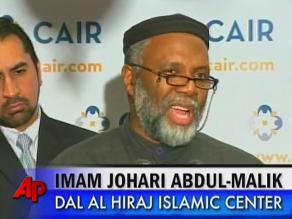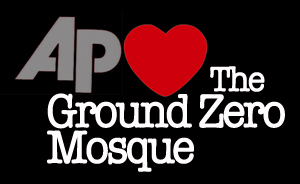We are a forward-looking people. We look to the future and advance beyond adversity, tragedy, and setbacks. We are not obsessed with the past.
All of these are qualities that de Tocqueville observed in the people of America, north and south, as he traveled across the country in the early 19th century prior to writing his classic study of American character, Democracy in America.
 Alexis de Tocqueville. Insightful, thorough chronicler of early America. Our national character has changed little since “Democracy in America” (1832) and that is cause for hope.
Alexis de Tocqueville. Insightful, thorough chronicler of early America. Our national character has changed little since “Democracy in America” (1832) and that is cause for hope.
At this time of international and domestic crisis and war, we also have a crisis of identity – who we are now and what our past means to us. The timing could not be more unfortunate.
This confusion of who we are, what we must do to survive as a nation, and how best to commemorate our distant and recent past is being played out across the country in every state and city. Controversies at two locations are of particular importance – the Gettysburg battlefield (Gettysburg, PA), and Ground Zero (Manhattan, NY). Gettysburg is one the central events of the greatest crisis in the American past and Ground Zero has been center of American culture and politics, if not the world’s, since 9/11/01.
It is altogether understandable that these two places should be linked.
We are having difficulty understanding the most appropriate and effective ways to remember our heroes, to commemorate our great history and, worst of all, we do not yet as a nation have the will to say “no” to the ideology that was behind the worst attack and largest mass murder in our history – 9/11.
If we are unable to make value judgments and take a stand based upon our understanding and response to the hero/villain, killer/victim, or innocent/guilty dichotomies, surely we are a culture adrift. A nation that does not appreciate or understand its past is a nation in trouble.
It is entirely wrong to allow a mosque to be built at Ground Zero. The building in question was damaged on 9/11 when the landing gear of one of the hijacked planes crashed through its roof. This means that the former Burlington Coat Factory building, the site of the proposed Ground Zero mosque, is part of the 9/11 massacre events and is hallowed ground to be protected.
We do not support the perpetrators of atrocities by legitimizing and honoring the ideology that motivated them. As a civilized country our position in such situations should always be with the victims and not with the killers.
What honor do we show to the memory of the fallen innocents of 9/11 and their families by allowing the construction of a temple to the very same ideology of hatred, intolerance, murder, and misogyny that brought about their deaths and still today is the driver for attacks on Americans and non-Muslims across the world?
The construction of such an edifice is an affront to us as a nation and to the victims of the attack and their families.
This controversy is not a matter of religious freedom; it is a matter of respect, and national survival – and nothing less. Rational nations do not set their own laws of tolerance, openness and freedom against themselves so that the nation itself is destroyed.
We appear almost flummoxed into inaction and confusion by this ideology that is clearly one thing yet pretends to be something else.
We have read their doctrine, have heard what their leaders say and, most importantly, have seen what their adherents do all in the name of their “religion of peace.” The great cognitive dissonance that is caused when our tolerance is used against us for hateful and aggressive purposes almost stultifies us with confusion. Our political correctness, multiculturalism, post-modernist world view, and now hard left national political and spiritual leadership, leaves us as vulnerable as we could be.
Our opposition to oppressive and intolerant ideologies that command their adherents to murder those who do not believe as they do, as well as those who want to leave their club, does not diminish us as a people.
Thomas Jefferson created the US Navy specifically to fight the Barbary “Pirates” – jihadists motivated by the Islamic doctrine, Koran, Sira, and Hadith. All of this is a matter of the historical record and not open to debate. Learning of the scourge of jihad as US Ambassador to France, Jefferson later built the US Navy specifically to oppose the jihadists of the Barbary States.
 In a letter to John Adams of July 11, 1786, long before his presidency, Jefferson wrote regarding the jihadists, “I acknolege (sic) I very early thought it would be best to effect a peace thro’ the medium of war.” Adams-Jefferson Correspondence, (Chapel Hill, 1959), p. 142.
In a letter to John Adams of July 11, 1786, long before his presidency, Jefferson wrote regarding the jihadists, “I acknolege (sic) I very early thought it would be best to effect a peace thro’ the medium of war.” Adams-Jefferson Correspondence, (Chapel Hill, 1959), p. 142.
In 1786, John Adams and Thomas Jefferson, American Ambassadors to France and England met with the Ambassador of Tripoli (one of the Barbary States) to ask why they were attacking American shipping without cause.
 John Adams. 2nd US President. He learned of jihad from the Barbary Pirates. His son, John Quincy Adams (6th US President), took the lessons of jihad to heart. In an essay series JQ Adams wrote, “…he [Muhammad declared undistinguishing and exterminating war, as a part of his religion, against all the rest of mankind… The precept of the Koran is, perpetual war against all who deny, that Mahomet is the prophet of God.” (JQA quote source, Andrew Bostom, FrontPage Magazine, Wednesday, September 29, 2004; see link in above paragraph.)
John Adams. 2nd US President. He learned of jihad from the Barbary Pirates. His son, John Quincy Adams (6th US President), took the lessons of jihad to heart. In an essay series JQ Adams wrote, “…he [Muhammad declared undistinguishing and exterminating war, as a part of his religion, against all the rest of mankind… The precept of the Koran is, perpetual war against all who deny, that Mahomet is the prophet of God.” (JQA quote source, Andrew Bostom, FrontPage Magazine, Wednesday, September 29, 2004; see link in above paragraph.)
The response of the Tripolitan Ambassador to Adams and Jefferson was illuminating to the Americans then as it should be to us today. The doctrine of Islam has not changed, only the ships.
It was written in their Koran, that all nations which had not acknowledged the Prophet were sinners, whom it was the right and duty of the faithful to plunder and enslave; and that every mussulmanwho was slain in this warfare was sure to go to paradise.
Source: Oren, Power, Faith, and Fantasy (Norton, 2007), p.27.
As the current mosque controversy at Ground Zero is illuminating the fact that 9/11 is the central issue in American life the importance of Gettysburg was just as critical in 1863. The battle of Gettysburg is commonly considered the key battle of the Civil War. Today a portion of that battlefield is being set aside for a casino and resort center.
Many historians, preservationists, and reasonable people across the country stand in opposition to this bizarre desecration of American hallowed ground in southern Pennsylvania. One of the leaders of those opposed to the casino project is historian Eric Wittenberg, a scholar and author of the battle of Gettysburg.
[youtube xnsVUuU3QAQ nolink]

COMMENTS
Please let us know if you're having issues with commenting.